
 My favorite blogger, Mark Manson, compared this last year to training at high altitude. High-performance athletes sometimes choose to train at high altitudes to give them a competitive advantage. The idea is that getting used to breathing less air in higher altitudes can make performing at lower altitudes seem more effortless.
My favorite blogger, Mark Manson, compared this last year to training at high altitude. High-performance athletes sometimes choose to train at high altitudes to give them a competitive advantage. The idea is that getting used to breathing less air in higher altitudes can make performing at lower altitudes seem more effortless.
At some level, this past year was emotionally and mentally challenging for all of us. It was like running at 7,000-8,000 feet above sea level with limited oxygen at times. The start of a new year doesn’t guarantee that our turmoil will end, but hopefully, in 2021, we can all come back down to sea level and breath a little easier. We can decide who to be in this new year by reflecting on what worked and what didn’t. A New Year is an excellent time to apply what we have learned from the past, resulting in a better future.
After listening to an encouraging talk from my favorite yoga teacher, Rob Stryker, I felt inspired to form a New Years Resolution for the first time since I was maybe 12-years old. The question Rod asked that drove me to do so was, “What lesson seems to be the most active in your life that you wish to learn once and for all? Today, I would like to ask you this same question so we all can have a more uplifting year regardless of the training altitude of 2021.
But first, let us talk about yoga
In yogic philosophy, there is this idea of reincarnation. Disclaimer: I am not asking you to buy into any of this. My intention is not to change your beliefs. My only hope is for you to keep an open mind while exploring new concepts.
 Reincarnation, or the idea that we can be reborn after this life, has been commonly accepted by most Indian schools of thought since before the time of the Buddha. The belief in reincarnation has likely existed in oral traditions for thousands of years prior. It is believed that our incarnation is always dependent on how our previous life was lived (karma). In a lifetime, people build up karma, both good and bad, based on their actions. This karma affects future lives and existences. The cycle of birth, life, death, and rebirth is referred to as samsara. In our current life, we have specific lessons to learn. If we do not learn these lessons, we will carry them into the next life until we have mastered them.
Reincarnation, or the idea that we can be reborn after this life, has been commonly accepted by most Indian schools of thought since before the time of the Buddha. The belief in reincarnation has likely existed in oral traditions for thousands of years prior. It is believed that our incarnation is always dependent on how our previous life was lived (karma). In a lifetime, people build up karma, both good and bad, based on their actions. This karma affects future lives and existences. The cycle of birth, life, death, and rebirth is referred to as samsara. In our current life, we have specific lessons to learn. If we do not learn these lessons, we will carry them into the next life until we have mastered them.
Over time, repetitive thoughts weave grooves in our brains, making it easier for our minds to follow an established pattern rather than create a new path. Yoga calls us to notice, study, and edit these ingrained patterns to prevent future suffering from occurring in this life or, depending on your belief, the next. We can resolve to weaken undesired patterns in our life by setting a clear and compelling resolution.
What Lesson Are You Meant To Learn In 2021?
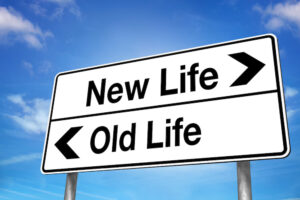 Most resolutions have to do with obtaining an external, short-term goal.
Most resolutions have to do with obtaining an external, short-term goal.
I asked Google what the top New Year’s resolutions for 2020 were.
This list included:
- Exercise more
- Lose weight
- Get organized
- Learn a new skill or hobby
- Live life to the fullest
- Save more money / spend less money
- Quit smoking
- Spend more time with family and friends
- Travel more
- Read more
The items on this list relate to obtaining something outside of us. There is nothing wrong with this kind of intention. But what if we shifted our focus from receiving something outside of us to achieving a quality within us? Maybe this type of resolve could lead us toward achieving meaningful, effective, and long-lasting results for this life or the next?
Choosing The Right Lesson
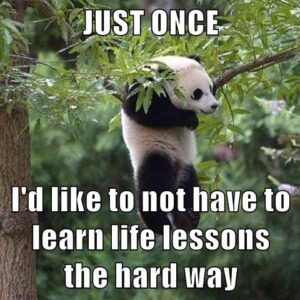 Life loves to teach us lessons. Most of these teachings are out of our control, such as a global pandemic. Life will continue to teach us the same lessons over and over again until we graduate from learning them. These lessons not only keep occurring but also show up in ways that may become increasingly more painful. The good news is once a lesson is mastered, there is no sense in having to go back and relearn it. We get to decide and control how quickly we wish to learn what life attempts to teach us. The goal is to learn, apply, and keep moving forward.
Life loves to teach us lessons. Most of these teachings are out of our control, such as a global pandemic. Life will continue to teach us the same lessons over and over again until we graduate from learning them. These lessons not only keep occurring but also show up in ways that may become increasingly more painful. The good news is once a lesson is mastered, there is no sense in having to go back and relearn it. We get to decide and control how quickly we wish to learn what life attempts to teach us. The goal is to learn, apply, and keep moving forward.
I like learning and also prefer not to suffer over and over again. So I decided to follow Rob’s guidance and ask myself, “What lesson is the most active in my life now that I wish to learn once and for all?” One lesson I have failed to learn thoroughly is that I am the only person responsible for my well being and state of mind. Failing to learn this lesson has held me back in specific ways, which include:
- I blame other people for my unhappiness, insecurities, or problems.
- Often, I push away the people who I think pose a threat to my state of mind.
- I feel powerless in certain social situations.
- I end up not showing up as the person I want to be.
- I hold back from being myself around others.
- I tend to let my mind perseverate on things about people that I believe upset me.
- I judge others rather than accept who they are.
How other people behave has nothing to do with my happiness. What does affect my quality of mind is the belief that I would be happy if others behaved how I wanted them to. Another one of my teachers, Brook Castillo, states most of us have written operating “manuals” for all the people in our lives. The manual is like a rule or instruction book for how other people should behave. Most of the time, we are not even aware we have written this manual for others. If we are aware, then the other person remains unaware of what our expectations for them are.
I give all of my power away when I believe my feelings are dependent on others’ unpredictable behaviors. I am the only one who suffers when I think someone should behave or think differently. The only thing I can control is my thoughts, feelings, actions, and results in my life. These things are independent from another person’s thoughts, feelings, actions, and results- which are variables we have absolutely no control over.
Your Resolution Is The Antidote
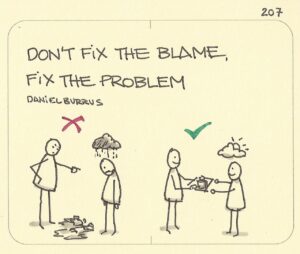 The antidote to my undesired belief is a resolution. My resolution must be a believable statement that will remediate my idea that others affect my state of mind. The simple antidote I came up with is, “I am the only person responsible for my feelings and the quality of my life.” Now, if I genuinely believed this statement, how would my actions be different? I can imagine I would:
The antidote to my undesired belief is a resolution. My resolution must be a believable statement that will remediate my idea that others affect my state of mind. The simple antidote I came up with is, “I am the only person responsible for my feelings and the quality of my life.” Now, if I genuinely believed this statement, how would my actions be different? I can imagine I would:
- Not push others away
- Accept others how they are without judgment
- Not question my self-worth based on other’s behaviors
- Remain calm despite how someone else is feeling
- Not take things personally
- Develop more compassion and understanding towards others
- Take full responsibility for the life I live
- Feel more connected to others
- Be thoughtful rather than reactionary when faced with conflict.
- Have more mental capacity to think about my goals rather than fill it with thinking about how I want someone to behave
- Feel more empowered
Whether or not I reach some external goal is irrelevant. What is more significant, to me, is putting an end to habitual patterns that hold me back from living the life I intend to live. The reward of living a complete life far outweighs the benefits of losing a few extra pounds or making more money this year or the next. I plan to learn as many lessons as I possibly can in this life with the hope of never having to relearn them again.
New Year, New Life Challenge
 So I challenge you to ask and answer the below questions for yourself. You can ask yourself these questions at any point during the year when you feel something may be holding you back from living your best life.
So I challenge you to ask and answer the below questions for yourself. You can ask yourself these questions at any point during the year when you feel something may be holding you back from living your best life.
1) What lesson is the most active in your life right now that you wish to learn once and for all? If you are unsure, you can look at where you currently are in certain areas of your life (profession, relationships, creativity, health, etc.). Pick one of these areas you most want to grow in. Where is it that you wish to go? What belief is holding you back from going there? Whatever is holding you back may be the lesson you most need to learn.
2) What are the pain patterns, or negative outcomes, of this unlearned lesson?
3) What statement do you need to believe to help combat your current belief? This statement should be something you believe to be true; however, you will also need to practice it repeatedly whenever your default belief creeps in.
4) What would it be like if you followed this antidote, or resolution, instead?
5) Practice your resolution. You can further instill it into your mind during the practice of Yoga Nidra (click here to learn more) or when sitting in silence. Make sure you remind yourself of this statement whenever you notice your default belief creep in.
6) Start taking actions and living life driven by your antidote rather than from your unlearned lesson.
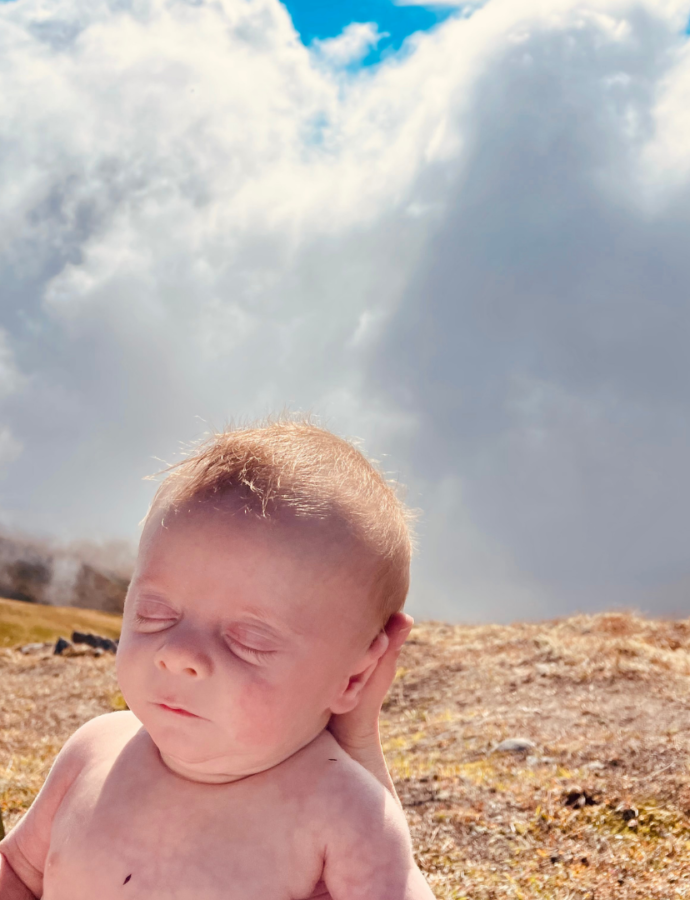

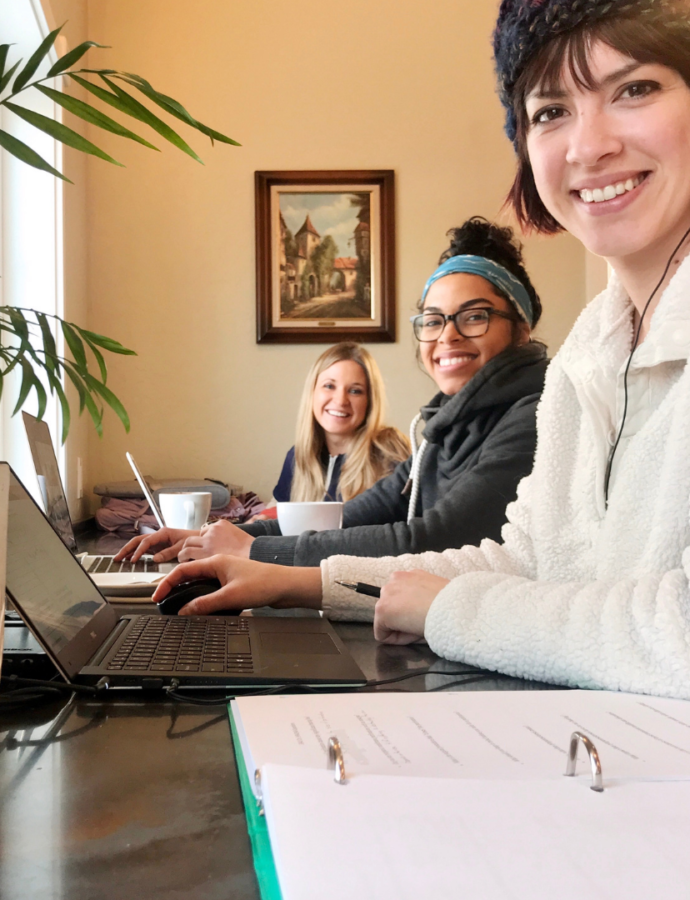


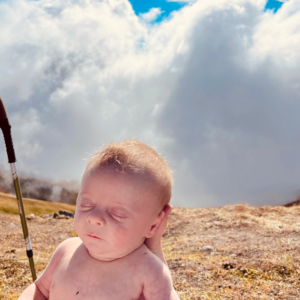


I very rarely respond to blogs but this entry has given me a lot to think about and it is truly one of the first New Year’s writing that I remotely have come close to agreeing with on so many levels. Thank you for your writing and for getting me to stretch my thinking and feeling about a lesson that I want to learn once and for all.
Hey Carmel! Thank you so much for your support and reading my thoughts with such an open mind. I really appreciate your comment 🙂
Nice to see Gladis. She was always an inspiration. You could tell by the twinkle in her eye, that she knew everything. She offered words of wisdom but I do not remember her being judgmental. Quite the contrary.
Keep doing the yoga. Strong body, strong mind. You’re beautiful.
Hi Suellen,
Gladis was THE BEST. I am lucky to have known someone who lived without judgement and prioritized serving others. Thanks so much for the kind words!